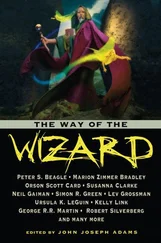Linda Wagner-Martin - The Life of the Author - Maya Angelou
Здесь есть возможность читать онлайн «Linda Wagner-Martin - The Life of the Author - Maya Angelou» — ознакомительный отрывок электронной книги совершенно бесплатно, а после прочтения отрывка купить полную версию. В некоторых случаях можно слушать аудио, скачать через торрент в формате fb2 и присутствует краткое содержание. Жанр: unrecognised, на английском языке. Описание произведения, (предисловие) а так же отзывы посетителей доступны на портале библиотеки ЛибКат.
- Название:The Life of the Author: Maya Angelou
- Автор:
- Жанр:
- Год:неизвестен
- ISBN:нет данных
- Рейтинг книги:4 / 5. Голосов: 1
-
Избранное:Добавить в избранное
- Отзывы:
-
Ваша оценка:
- 80
- 1
- 2
- 3
- 4
- 5
The Life of the Author: Maya Angelou: краткое содержание, описание и аннотация
Предлагаем к чтению аннотацию, описание, краткое содержание или предисловие (зависит от того, что написал сам автор книги «The Life of the Author: Maya Angelou»). Если вы не нашли необходимую информацию о книге — напишите в комментариях, мы постараемся отыскать её.
The Life of the Author: Maya Angelou
The Life of the Author: Maya Angelou
The Life of the Author: Maya Angelou — читать онлайн ознакомительный отрывок
Ниже представлен текст книги, разбитый по страницам. Система сохранения места последней прочитанной страницы, позволяет с удобством читать онлайн бесплатно книгу «The Life of the Author: Maya Angelou», без необходимости каждый раз заново искать на чём Вы остановились. Поставьте закладку, и сможете в любой момент перейти на страницу, на которой закончили чтение.
Интервал:
Закладка:
Throughout Marguerite’s middle-school years, she became the writer, the poet, the song writer, the essayist. And eventually she began to speak to friends, in class and on the playground. Perhaps most significant, she seemed to accept her role as writer without apology.
On one of the rare occasions when Momma could not bend others to her way of thinking – in the case of her taking Ritzie to a white dentist who owed money to Annie, Marguerite learned a clear lesson about racial inferiority. This dentist refused to treat her, even though the pain of her decaying tooth was visible. When Momma then took Ritzie to a black dentist, knowing that relief trumped pride, Ritzie saw that as her grandmother’s giving up, giving in to the inevitable. She created a fantasy story that made her grandmother the successful warrior in the race battle, but her fiction remained only that. Prejudice had bested even the strongest of Annie Henderson’s wishes.
When she was 11, Ritzie wanted to earn some real money so she asked to work for the Virginia lady, Mrs. Viola Cullinan. Genteel in her niceness, this woman had little understanding about ways of treating the African American children of Stamps. She began her relationship with Ritzie by giving her no instructions about the cleaning she wanted done – how did a person even start a vacuum cleaner? And secondly, she never learned Ritzie’s name – called her “Mary” throughout her service. Marguerite is not so different from Mary , but it is different and from the days of slavery into the 20th century, claiming one’s own name was essential for any proud person. The phrase of insult was “called out of his/her name.” Not using a person’s name was a grave act. After she consulted with Bailey on a pay-back action, Ritzie shattered three of Mrs. Cullinan’s dishes from Virginia. Then she ran out the door, never to return.
Segregation in Stamps was fully operative. It made no difference to either part of the town that Marguerite was always at the top of her class. It made no difference to either part if she were polite to older people, or if she tried to take on the white girls who sometimes were impudent to Annie Henderson. Although Bailey and Ritzie were made to operate under a severe code of politeness, they did so not out of fear but out of their love for Momma and Uncle Willie. Even decades later, Marguerite would remember – and recite – Momma’s morning prayer, which she had heard every day of her life in Stamps as Momma prayed on her knees by the side of her bed, even before thinking about the day of work ahead.
Our Father, thank you for letting me see this New Day. Thank you that you didn’t allow the bed I lay on last night to become my cooling board, nor my blanket my winding sheet. Guide my feet this day along the straight and narrow, and help me to put a bridle on my tongue. Bless this house and everybody in it. Thank you, in the name of Your Son, Jesus Christ. Amen.
A prayer of thanks and supplication, Annie’s traditional opening of the day set everybody’s spirit in its best posture. She prayed this way even on Sunday when her first act, after preparing breakfast, would be to spend hours in church, serving her God as best she could.
Annie Henderson’s pride in Marguerite’s steady accomplishments never lagged. Her pride, however, had long been tempered by her fears about Bailey’s visibility. Just as she had for decades protected Uncle Willie from Stamps’ white culture, particularly its intermittent Ku Klux Klan rides, so she saw the smart-mouthed Bailey, Jr. becoming the teenaged black youngster who behaved as if he were white himself. Proud of his own talents, admitting his intelligence and his good looks, Bailey, Jr. had long been spending his Saturdays at the movie theater – often alone. Most of his friends did not have cash; others were afraid to go so regularly into white Stamps. A few thought it strange that Bailey often spent the day in town, paying twice to see the same show.
When Bailey was late returning home, Momma was visibly worried. A few times, she took Ritzie with her to walk briskly into town. On other occasions she told neighbors about the boy’s tardiness.
One time when Bailey was about to graduate from eighth grade, he got the idea that he could hop a freight to California, where his mother had recently moved. Ritzie worried whenever he was near the tracks. Even though his longing to see Vivian was palpable, no one in Stamps thought he would try to go by freight train. Ritzie was with him on the day he made the attempt: she was sure he would be killed as they stood close beside the layers of tracks. But he made it onto the car and she knew Momma and Uncle Willie would be horrified that he was gone. As she was.
Bailey made it only as far as Baton Rouge, Louisiana. Worse, it took him several weeks to figure out how to get back to Stamps. Missing school those weeks put his graduation in jeopardy: he had to do extra homework every night. Grateful that he had returned, Momma did not add to his chores; she even did some of them herself.
The reality was that Bailey, Jr. seemed not to believe that he was in danger because of his skin color. A year or so earlier, he had seen the vivid distinction between white men and black. Coming home from a movie, he witnessed white men dragging the mutilated body of a black, his testicles gone, after he had been pulled from the river. Fascinated, Bailey had stopped to watch. What seemed to have appalled him was not so much the dead man’s body itself but the behavior of the white men, who were laughing and making hateful comments about the dead man. When he talked to Momma about what he had seen, he asked her why those men had been so disrespectful of death.
Momma, in turn, often scolded Bailey about his behavior when he was in town. In a scene Angelou writes late in her life about the patterns Momma and Bailey, Jr. had created, she has Annie Henderson saying to her grandson,
“You been downtown showing out? Don’t you know these white folks will kill you for poking fun of them?” “Momma, all I do is get off the street they are walking on. That’s what they want, isn’t it?” “Junior, don’t play smart with me. I knew the time would come when you would grow too old for the South. I just didn’t expect it so soon…” 3
And in a later coda, Angelou adds her personal lament for the mothers of these boys and men: “The black woman in the South who raises sons, grandsons and nephews had her heart strings tied to a hanging noose.”
Notes
1 1 Angelou in conversation with Dolly McPherson, in McPherson, pp. 133–134.
2 2 Angelou, Collected Autobiographies, p. 73.
3 3 Angelou, Mom & Me & Mom, p. 9.
Конец ознакомительного фрагмента.
Текст предоставлен ООО «ЛитРес».
Прочитайте эту книгу целиком, купив полную легальную версию на ЛитРес.
Безопасно оплатить книгу можно банковской картой Visa, MasterCard, Maestro, со счета мобильного телефона, с платежного терминала, в салоне МТС или Связной, через PayPal, WebMoney, Яндекс.Деньги, QIWI Кошелек, бонусными картами или другим удобным Вам способом.
Интервал:
Закладка:
Похожие книги на «The Life of the Author: Maya Angelou»
Представляем Вашему вниманию похожие книги на «The Life of the Author: Maya Angelou» списком для выбора. Мы отобрали схожую по названию и смыслу литературу в надежде предоставить читателям больше вариантов отыскать новые, интересные, ещё непрочитанные произведения.
Обсуждение, отзывы о книге «The Life of the Author: Maya Angelou» и просто собственные мнения читателей. Оставьте ваши комментарии, напишите, что Вы думаете о произведении, его смысле или главных героях. Укажите что конкретно понравилось, а что нет, и почему Вы так считаете.












